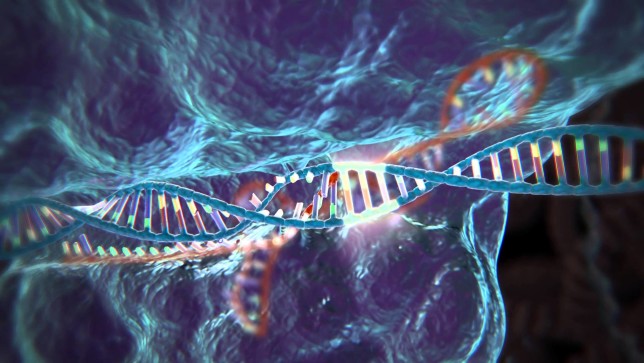A new scientific publication shows that CRISPR/Cas gene scissor applications in animals unintentionally leave traces. The findings, as commented on by Testbiotech, are not related to unintended changes in the DNA, which have often been described, but to gene regulation, i.e. epigenetics. The effects are heritable and may, for example, result in disruption of embryonic development, GM Watch reported Tuesday.

Source: GM Watch
The new scientific publication describes CRISPR/Cas experiments with mice in which their DNA is cut and additional genetic information inserted. Besides intended changes in DNA in the target region, the findings also showed unintended changes in so-called epigenetic markers that control gene regulation. The effects were heritable and could still be identified after ten generations. According to the authors, the effects can also be used to identify CRISPR/Cas gene scissor applications.
The results were specific to some particular gene scissor applications and not observed if no additional genetic information was inserted. Further experiments are necessary to investigate the effects of the epigenetic changes in each specific organism. It is also not known whether the gene scissors may cause changes in other epigenetic markers, or if similar effects might be expected in insects and plants.
Testbiotech comments that epigenetic effects are often heritable without the DNA itself being changed. Epigenetic factors are, for example, decisive for embryonic development. In addition, reactions to environmental stressors are also influenced by epigenetics. In this context, epigenetic markers determine which genes are activated or silenced in which cells, thereby controlling gene expression. These epigenetic markers are not mutations in DNA, but biochemical attachments.
Testbiotech adds that the recent findings not only indicate risks for medical applications but also for the environment. For example, gene drive organisms generated by CRISPR/Cas are altered in a way that epigenetic changes, which can result in alterations in the patterns of gene expression, are present in the genomic makeup of all offspring. If this process also causes unintended changes in gene regulation, environmental risk assessment is much more complicated.
Health risks
The new study showed that the original methylation pattern of the DNA was unexpectedly changed and that more methylation groups were present. DNA methylation is the addition of a methyl group, which most frequently takes place on certain cytosine DNA base units and which is usually associated with the silencing of gene expression.
Commenting on the new findings, London-based molecular geneticist Dr Michael Antoniou said, “This unexpected and intriguing finding clearly calls for research to ascertain whether similar stably inherited epigenetic DNA methylation changes take place in CRISPR/Cas edited food plants.
“This type of investigation is essential, since these epigenetic changes add yet another mechanism by which unintended alterations in gene function can result from gene editing.
“Alterations in patterns of gene function will inevitably lead to changes in the biochemistry of the organism, which could negatively affect crop performance, or more worryingly, could include the production of novel toxins or allergens.”
Background and summary (by “Project Genetic Engineering and the Environment”):
fachstelle-gentechnik-umwelt.de
Source of comment: Testbiotech
www.testbiotech.org
—
The new study:
Detection of CRISPR-mediated genome modifications through altered methylation patterns of CpG islands
M. Heath Farris, Pamela A. Texter, Agustin A. Mora, Michael V. Wiles, Ellen F. Mac Garrigle, Sybil A. Klaus & Kristine Rosfjord
BMC Genomics volume 21, Article number: 856 (2020)
bmcgenomics.biomedcentral.com



















Important to note- a Caveat.
It is also not known whether the gene scissors may cause changes in other epigenetic markers, or if similar effects might be expected in insects and plants. emphasis on “It is also not known”
and in the sme refernenced article- could negatively affect crop performance, emphasis “could” = “It is also not known”